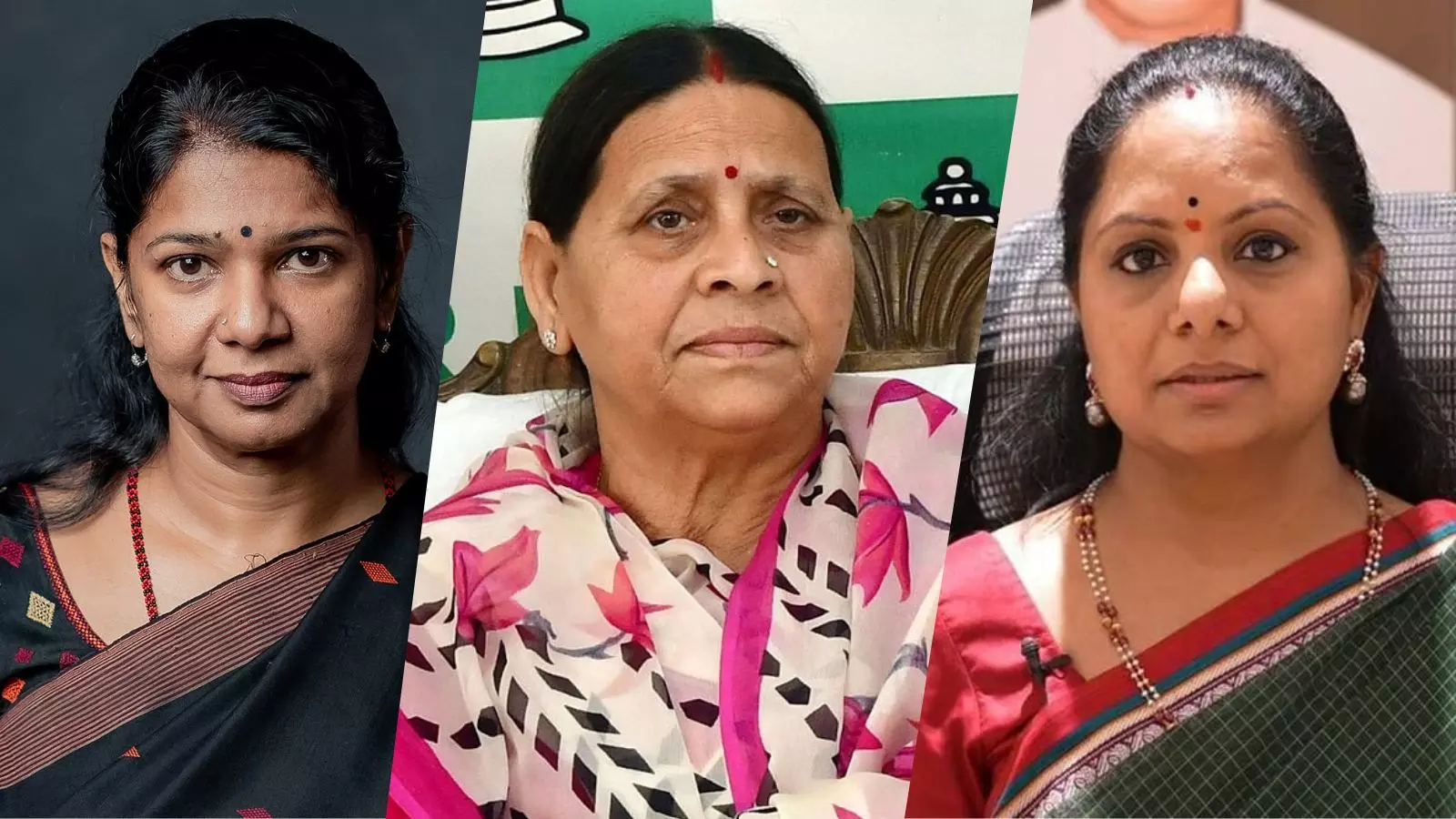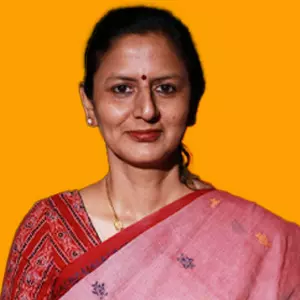
- Home
- India
- World
- Premium
- THE FEDERAL SPECIAL
- Analysis
- States
- Perspective
- Videos
- Sports
- Education
- Entertainment
- Elections
- Features
- Health
- Business
- Series
- In memoriam: Sheikh Mujibur Rahman
- Bishnoi's Men
- NEET TANGLE
- Economy Series
- Earth Day
- Kashmir’s Frozen Turbulence
- India@75
- The legend of Ramjanmabhoomi
- Liberalisation@30
- How to tame a dragon
- Celebrating biodiversity
- Farm Matters
- 50 days of solitude
- Bringing Migrants Home
- Budget 2020
- Jharkhand Votes
- The Federal Investigates
- The Federal Impact
- Vanishing Sand
- Gandhi @ 150
- Andhra Today
- Field report
- Operation Gulmarg
- Pandemic @1 Mn in India
- The Federal Year-End
- The Zero Year
- Science
- Brand studio
- Newsletter
- Elections 2024
- Events
- Home
- IndiaIndia
- World
- Analysis
- StatesStates
- PerspectivePerspective
- VideosVideos
- Sports
- Education
- Entertainment
- ElectionsElections
- Features
- Health
- BusinessBusiness
- Premium
- Loading...
Premium - Events

For every Indira Gandhi or Jayalalithaa who stayed on, hundreds of female relatives turned 'temps' when crisis struck male politicians; son is heir, daughter is spare
We all grew up on a staple of brave Indian queens who led their kingdoms with wisdom and fought enemies bravely. And yet, be it Rani of Jhansi or Rani Chennamma or Velu Nachiyar, their ascent happened only during exigencies — typically, the husband or father died, and there was no adult male heir to take on the mantle.
Cut to the 21st century, and hardly anything has changed.
The latest example would be Kalpana Soren. A qualified engineer and entrepreneur, she was leading a private life when husband Hemant Soren, Chief Minister of Jharkhand, got arrested in an ED case. The political novice was instantly made the JMM face in the INDIA bloc's campaign in the 2024 Lok Sabha elections in Jharkhand. She won a seat herself in the state assembly later in the year.
But by then, Hemant was out of jail and back as Chief Minister, and Kalpana faded into the background.
In and out
Earlier, it was Nara Bhuvaneswari, wife of Andhra Pradesh Chief Minister N Chandrababu Naidu. When Naidu was jailed in 2023 in a Skill Development Corporation scam case, his party TDP needed Bhuvaneswari to keep things in order.
Also read | No, Nirmala Sitharaman, patriarchy isn’t a ‘leftist jargon’; it’s the system we live in
She hit the streets, meeting people and keeping tabs on party leaders to ensure the flock stayed intact till Naidu got out of jail and returned as Chief Minister after the 2024 election. Today, as CM’s wife, she leads the garden variety of public life, cutting ribbons at non-political events.
The cruel jibes and sexual innuendoes that Mamata Banerjee, Mayawati and Smriti Irani have faced down the decades should shame us as a nation, irrespective of which side of the political spectrum our sympathies lie with.
Bhuvaneswari is the daughter of the late NT Rama Rao (NTR), who lost his Andhra Pradesh CM seat in a political coup led by Naidu, the son-in-law, in 1995. The trigger was the political rise of NTR’s young wife Lakshmi Parvathi that was indigestible to fragile male egos.
Housewife-chief minister
But the top-of-the-mind recall on this topic would be Rabri Devi, whose role escalated from housewife to Bihar Chief Minister overnight in 1997, when husband Lalu Prasad was jailed over corruption charges. She was always seen as a placeholder CM. Never mind that she held the CM post for at least eight years — in fits and spurts — across three tenures. Today, she is an MLC, but almost entirely out of public life.
Very rare is the Indian woman political scion whose potential is spotted early, nurtured, and rewarded at the appropriate time. Under the existing pattern, it’s only when a leader falls sick, dies, or gets jailed that a woman in his family hits public life.
With caveats. She doesn’t get ambitious, doesn’t take unilateral decisions, and never lets people forget that she’s basically a spare. And, she steps down meekly when the man is back in form.
It is on the last count that Indian male politicians are happiest letting their wives, sisters or daughters keep their seats warm. A male ‘stepni’ could get ambitious.
Soaring ambitions
Recall how Champai Soren, made Jharkhand Chief Minister when Hemant Soren was jailed, was loath to take the backseat when the latter was released on bail.
Also read | Uttarakhand's UCC is neither uniform nor truly civil to citizens
Or Jitan Ram Manjhi, who started his stint as Bihar Chief Minister in 2014 under what is suspected to be an intricate drama staged by Nitish Kumar. Manjhi was initially ridiculed for being a ‘puppet CM’. However, when he was told by the JD(U) in 10 months to ‘return’ the seat to Nitish, Manjhi rebelled. He quit the JD(U), set up his own party, the Hindustan Awam Morcha-Secular (HAM-S), and joined the BJP-led NDA. Today, he is Union MSME Minister, but nowhere in the limelight that the CM post had afforded him.
Down south, the Pattali Makkal Katchi (PMK) is seeing an intense power struggle between party patriarch S Ramadoss and his son and political heir Anbumani Ramadoss.
Dad's little angels
How many instances have we seen of daughters rebelling against their fathers in Indian politics? At the most, they fight other relatives, including brothers — think YS Sharmila vs YS Jagan Mohan Reddy.
On the other hand, we have Kanimozhi, who spent more than six months in Tihar Jail for a 2G scam which, in retrospect, could be viewed as an elaborate ploy that ended the UPA regime of Manmohan Singh. None of the male heirs of her father M Karunanidhi, former Tamil Nadu Chief Minister, paid such a high price for politics.
Also read | Why Kamal Haasan-hosted Bigg Boss Tamil is problematic at many levels
Today, Kanimozhi is the face of the DMK when it needs a woman leader who is educated, articulate, politically experienced, and can carry herself with grace. But god save her if she gets ambitious beyond that. MK Stalin’s heir apparent, unequivocally, is the much younger — and at least initially reluctant — Udhayanidhi Stalin, who will need at least another decade in politics before he can think of stepping into his father or grandfather’s shoes.
In moments of extreme cynicism, one wonders if Supriya Sule — or even Indira Gandhi — would have risen without a fight had they had male siblings.
And there is K Kavitha, BRS leader and daughter of former Telangana Chief Minister K Chandrashekar Rao, who spent five months in jail in the Delhi liquor scam case. She is out on bail, spewing rage on her party seniors including brother KT Rama Rao, but carefully keeping her father out of it.
First choice
And yet, it is the sons that political leaders choose. From Lalu Prasad’s vast brood of children, it’s Tej Pratap Yadav and Tejashwi Yadav who rose quickly to power. Tej Pratap was given a long rope for various misdemeanours before Lalu last week put his foot down and expelled him from the party, just ahead of Assembly polls in Bihar.
Staunchly supporting Lalu was his daughter Rohini Acharya, who not only gave him a kidney but also famously said, “Papa is like God, family is our temple.”
Rohini and her sister Misa Bharti contested the general election last year and variously lost and won, but it makes little difference to their political careers. Tejashwi leads the show, Tej Pratap gets in and out with a rap on the knuckle, but the daughters can hardly dream of ascending in the party hierarchy in normal circumstances.
While political dynasties are criticised and defended, little thought is given to how, even within those families, the women get sidelined. In the typical pattern of patriarchy, they are “kept out for their own good” — the ghar ki Lakshmi who turns Durga on demand.
Ones who stayed
Rare is the woman politician who stepped in during an emergency situation and stayed on. Sonia Gandhi took over the party leadership when Rajiv Gandhi died, and dug her heels in. When Tamil Nadu Chief Minister MG Ramachandran (MGR) died, his wife Janaki Ramachandra was quickly anointed CM. Her government lasted three weeks before the resultant political instability triggered President’s Rule in Tamil Nadu.
Also read | Sindoor as a war cry, when all that women want universally is peace
Meanwhile, MGR’s protege J Jayalalithaa fought for her space. Physically, emotionally abused and humiliated, she had to overcome a zillion odds before she made it big in politics.
In moments of extreme cynicism, one wonders if Supriya Sule — or even Indira Gandhi — would have risen without a fight had they had male siblings. The career of Priyanka Gandhi, who entered electoral politics less than a year ago, will be interesting to watch — particularly any shift in the power balance if the Congress wins the 2029 general election.
If the path for women in political dynasties is narrow and pothole-ridden, it’s an absolute sinkhole when a ‘common woman’ tries to make a mark. The cruel jibes and sexual innuendoes that Mamata Banerjee, Mayawati and Smriti Irani have faced down the decades should shame us as a nation, irrespective of which side of the political spectrum our sympathies lie with.
Where parity makes sense
The Women's Reservation Bill was passed in 2023 amid much fanfare and self back-patting by all parties and all sections of the population. Two years down the line, there is little clarity on how it is going to be implemented even if the national census is conducted next year.
The census, in fact, is now spoken about more in the context of a caste survey and delimitation, with little debate around the promised 33 per cent seats for women in the Lok Sabha and state assemblies.
Leaders should realise that creating an environment where women can thrive on par with men in the corridors of power — be it their own womenfolk or rank outsiders — is ultimately a win-win. Women tend to display certain characteristics, such as empathy and intuitiveness, that help their governments and political parties in the long run.
Like DEI (Diversity, Equity, and Inclusion) hiring, getting women on board is more about making gains by tapping into a wider set of candidates and less about ticking the mandatory boxes.


